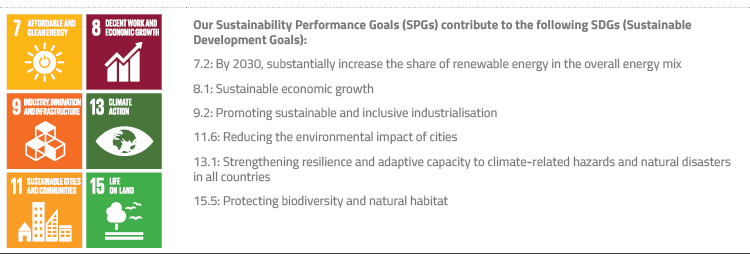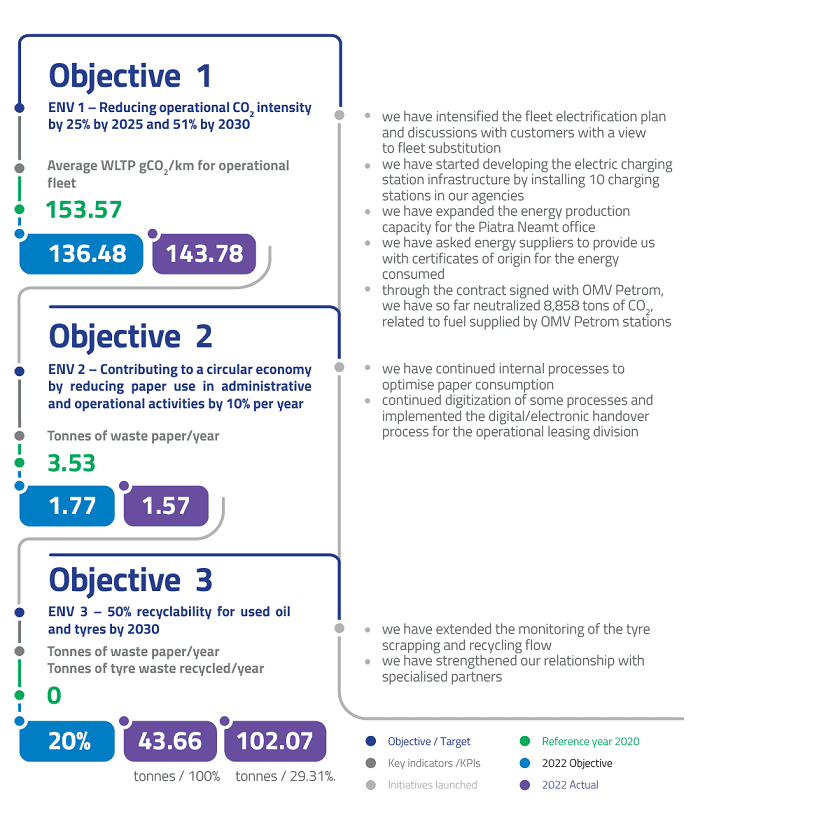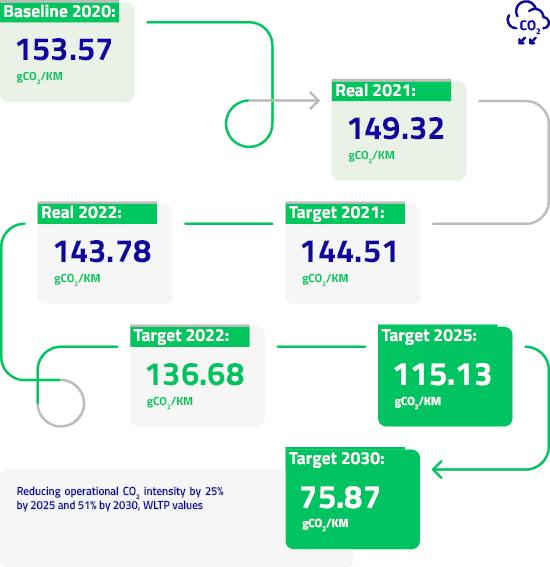4. Care for the environment
We continue to work on our commitment. To this end, our actions and plans are permanently directed towards contributing to and caring for the environment, both in our direct activities and in working with our partners.
The environmental pillar is a strategic direction for Autonom, whose importance we support by assuming the following objectives:
• reducing the environmental footprint generated by responsible consumption of the resources needed to run our operations;
• raising awareness of climate change and setting priorities to reduce carbon intensity.
We are mindful of our direct and indirect environmental impacts resulting from our core business and make responsible decisions in line with global climate change concerns. We want to act preventively and transform our business in a healthy and sustainable way.
By integrating the concepts of the Sustainability Strategy into all aspects of our business and encouraging their extension into our personal lives, we ensure that we use a common language in implementing them in our daily lives, at home or in the office. In alignment with our values, we also believe that lifelong learning remains the key to an enhanced quality of life, while protecting and conserving natural resources.
As we have our share of responsibility for the fleet made available to customers for use, we have committed to concrete actions to reduce the negative environmental impact and have created car fleet substitution scenarios, ensuring the transition to a greener, low CO2 fleet. We have updated our overall business plan and long-term business development opportunities and we are committed that the objectives we are pursuing through our Sustainability Strategy, with a time horizon of 2020÷2025÷2030, are ambitious and aligned with international initiatives and standards in the field.


Following the resumption of all economic operators at full capacity after the pandemic period but also in the context of the integration of a significant car fleet following the acquisition of Premium Leasing, the aggregate mileage run by our customers in 2022 was 354 million km, up 88% from 264 million km in 2021. We have taken on the integration of the new fleet without any changes to our medium and long-term commitments, namely: reducing operational CO2 intensity by 25% by 2025 and 51% by 2030, calculated as WLTP average.

Looking at the progress towards our targets, we are aware that we are slightly behind the annual roadmap set out in the Sustainability Strategy but we are confident that, as the market context allows, the transition to a green fleet, by integrating as many electric and low-emission cars as possible, will be increasingly smooth and will give us the support we need to accelerate our steps towards our targets.
This path is already confirmed by the green loan obtained from the European Investment Bank in autumn 2022 to expand the fleet with low-emission cars and the necessary infrastructure and by the contract signed with Tesla at the end of 2022, materialised by a first order of 200 Tesla Model 3 and Model Y electric cars launched in early 2023. The first cars have already arrived in the Autonom fleet in the first quarter of 2023.
At the same time, we have started to develop a dedicated operating lease product – Autonom Business Green – with additional benefits for those who want to make the transition to an electric car but are hesitant to take this step because of the long-distance range issue, especially with the limitations created by the early development of the electric infrastructure.
We have also been involved in projects to raise awareness of the benefits of electric vehicles, but also to increase understanding of the changes in user behaviour that can be a barrier to adoption in the absence of information. Two partnerships in this respect were the Cars & Roads and RoCharge projects, developed by Autocritica.
The 2022 changes in the Autonom fleet, both for the agency rental fleet and the operational leasing fleet, confirm the increase in the share of hybrid and electric cars, an important step towards the transition to green fleets and the achievement of the sustainability targets.
Fleet progress 2022 vs 2021:

